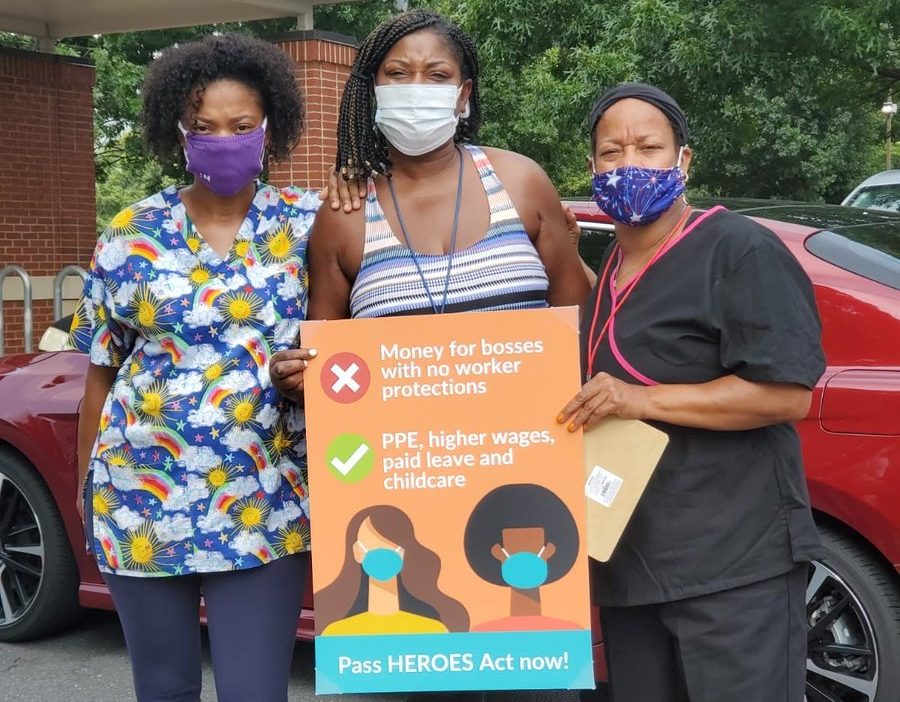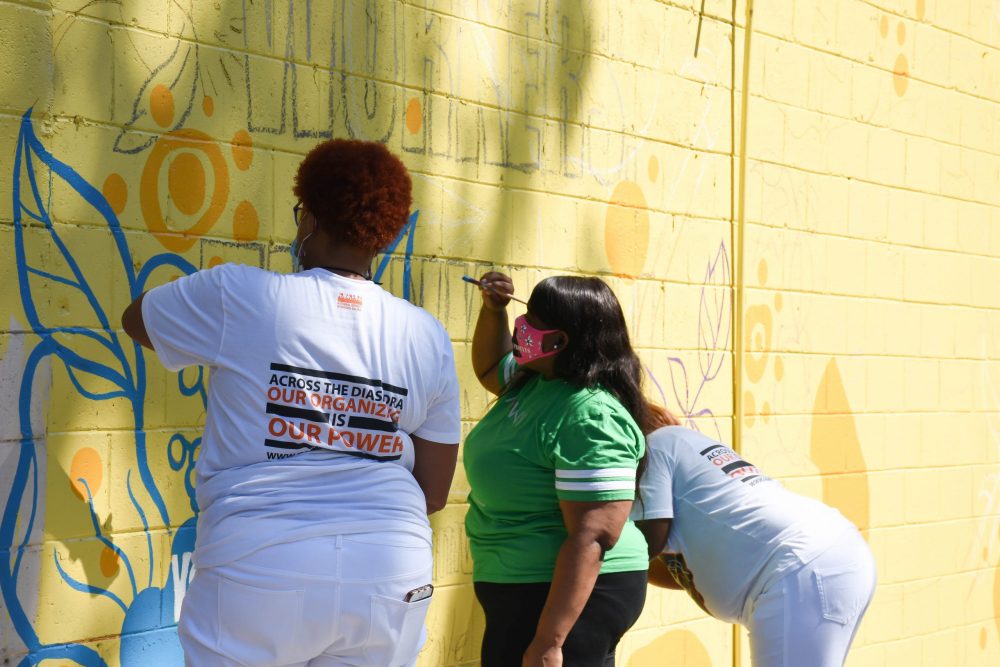Disaster Philanthropy Playbook

COVID-19 – National Domestic Workers Alliance
National Domestic Workers Alliance (NDWA) received a $125,000 grant from the Center for Disaster Philanthropy (CDP) to help stand up a $30 million direct cash assistance fund for domestic workers in critical need and to support those workers with information, other resources and personal protective equipment so they can continue to work safely. Additionally, funds allowed NDWA to advocate on workers’ behalf for local, state and federal policy changes to improve their work conditions and allow them access to available support resources.
Founded in 2007, NDWA works “for respect, recognition and inclusion in labor protections” with and on behalf of the more than 2.5 million domestic workers in the U.S.”
Domestic workers are nannies, housekeepers and home care workers who work with the elderly or people with disabilities to help them live more independently. The majority are women of color — Black, Latina, Asian and Indigenous. Almost all are women, some are undocumented. They are paid low wages, have little to no benefits and there is little to no pathway for enforcement of their rights, given their intentional exclusion from federal labor laws protecting workers. Discrimination is ever-present, as is potential wage theft. Because their workplaces are private homes, these jobs can easily conceal abuse, especially for those in live-in situations. Domestic workers are in urban cities and rural places across the country in all kinds of households.
They are also usually one paycheck away from a crisis, so COVID-19 has become a life-or-death situation for many on the frontlines of the industry. Jennifer Dillon, Communications Director for NDWA, said:
“They care for people. Care doesn’t take a day off.”
“As COVID started to get more socialized in the U.S., everything that was happening across the country was multiplied for domestic workers, both in their job(s) and their household overall. As things were shutting down, they had to make a choice if they would go to their clients’ houses or not get paid.”
For many domestic workers, not getting paid means they cannot afford groceries or pay their rent. There is no social safety net for domestic workers and many were ineligible for the financial assistance provided by the government because of their documentation status.
Domestic workers are often undervalued, in part because the majority are women of color and immigrant women. They have been historically left behind through economic policies, according to Dillon. NDWA, she says, “works to be able to improve conditions of domestic workers but also to build power for domestic workers through connecting them, educating them and organizing them.”
Kaylyn Kvochak, NDWA’s Deputy Development Director, said, “Our bread and butter is the organizing piece. We strive to be led in everything we do by the workforce—in our policy advocacy, culture and narrative change and in our product and innovations strategies. We look at how to build power for domestic workers and for women of color more broadly.”
Dillon added, “The reason that we have multiple strands of work that we do is because we’re trying to change the care sector but also the lives of immigrant women and women of color. We have to have layers of strategies that are interconnected to make major wins for their lives.”
Kvochak explained that situations varied for domestic workers when the lockdowns started and as the pandemic continued. During the initial lockdowns, some home care workers continued to work because their clients were vulnerable and depended upon them. But they had to try to figure out how to shoulder the additional burden. For example, some employers asked care givers to take private transportation, which put pressure on already tight household budgets. Many workers had their own kids out of school, which meant they needed to secure child care.

“Nannies and housekeepers saw their incomes evaporate overnight as we were asked to limit exposure to people outside of the home,” Kvochak said. “We saw people talking about food and housing insecurity. This could have been predicted but now the value of care and the precarity of care work came into sharp relief into ways that they hadn’t been thought about before. All of a sudden, everyone had care issues and were thinking about the ramifications of what that meant. We asked ourselves, ‘how do we help our workforce navigate the immediate crisis but also use the moment to accelerate the conversation around expanding the safety net to protect all workers.’”
A weekly Spanish-language survey was conducted, each one drawing a sample of domestic workers from NDWA’s digital network of over 230,000 workers, allowing NDWA to track the changing needs of workers throughout the pandemic and providing complementary economic data for workers who are often underrepresented in more formal indicators. These internal surveys showed that more than 70% of domestic workers experienced a significant loss of income in the early months of the pandemic.
Kvochak noted that CDP’s grant, which NDWA received in the early stages of the pandemic, helped them leverage different strategies and respond in real time. For example, the grant helped fund an intense communications and narrative campaign to get domestic workers’ stories front and center in the news media. They also used the funding to distribute PPE to keep their workforce safe. They created resources such as COVID-19-ready training for home care workers to keep themselves and their clients as safe as possible. And it helped support the extra support staffing needed to distribute over $30 million raised for cash assistance to impacted workers, which NDWA did through Alia, its existing benefits platform, designed specifically for the needs of the domestic workforce.
The policy work CDP funded was also critical.
“Response is usually charitable, but it doesn’t look at the needs further along or the inequities that created the conditions,” said Dillon.
“We wanted to explore how do we create something different – not just address the short-term piece. CDP’s funding allowed us to fund immediate needs and long-term policy advocacy.”